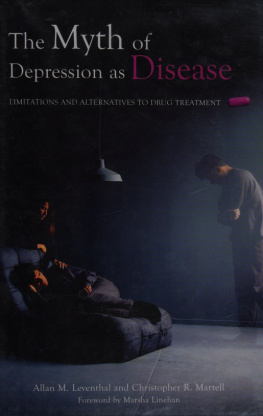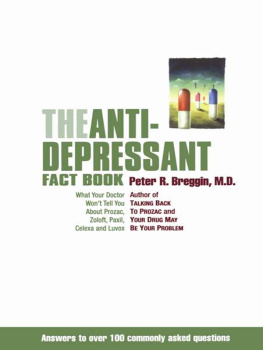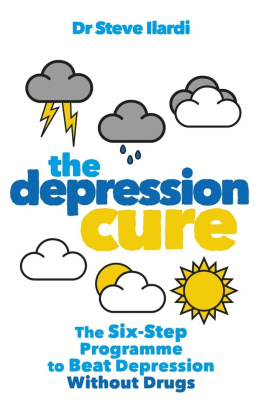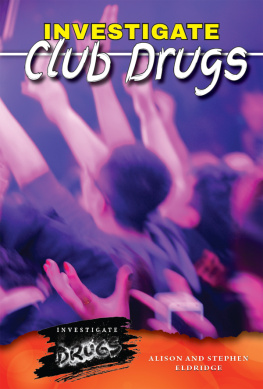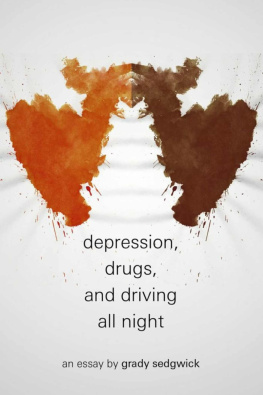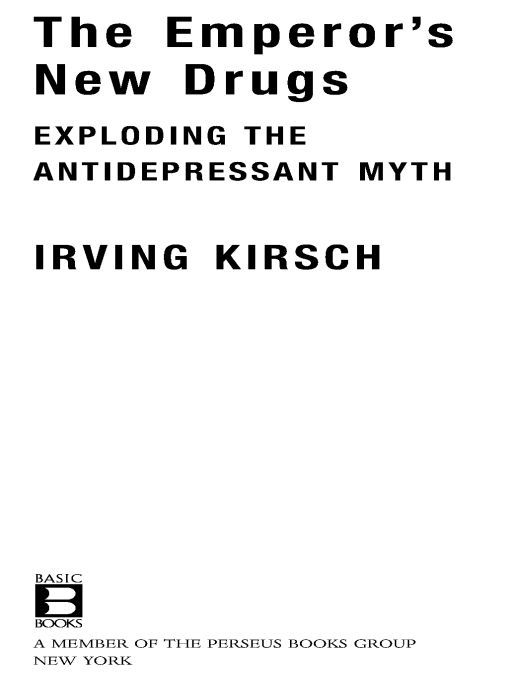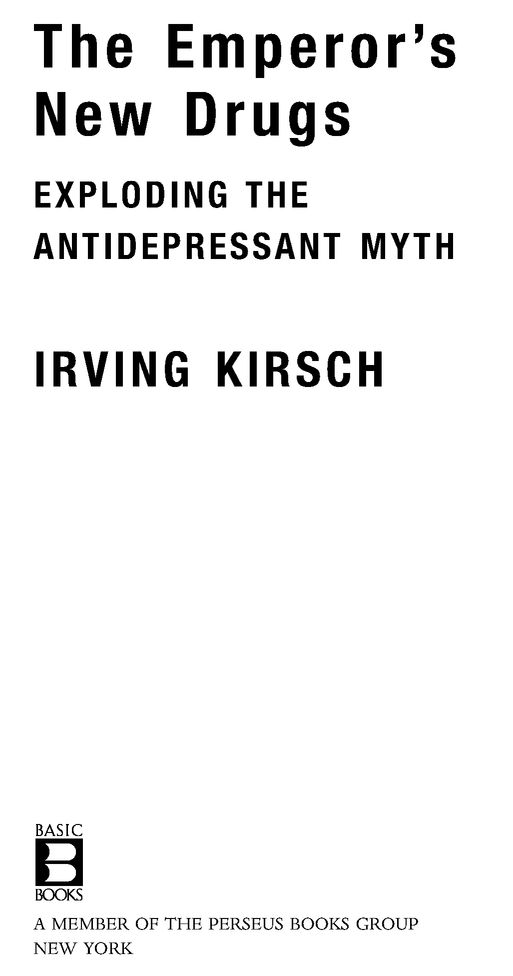Table of Contents
For Leo, Alice, and the grandchildren yet to come
Brahms is the best antidepressant.
Peter Sproston, 2008
Brand Names
| Generic | American | British |
| Fluoxetine | Prozac | Prozac |
| Paroxetine | Paxil | Seroxat |
| Sertraline | Zoloft | Lustral |
| Venlafaxine | Effexor | Effexor |
| Nefazodone | Serzone | Dutonin |
| Citalopram | Celexa | Cipramil |
The information in this book is not a substitute for professional advice on specific emotional issues. Please consult your GP before changing, stopping or starting any medical treatment, specifically antidepressant medication. So far as the author is aware the information given is correct and up to date as at 3 September 2009. The author and publishers disclaim, as far as the law allows, any liability arising directly or indirectly from the use, or misuse, of the information contained in this book.
Acknowledgements
Special thanks are due to Giuliana Mazzoni, David Bassine, Alan Scoboria and Steven Jay Lynn, who carefully read and provided very helpful feedback on a number of chapters. Giuliana, in particular, helped me set the tone of the early chapters. I also thank Joanna Moncrieff, who gently critiqued a rather poorly done first draft of Chapter 4. I hope she likes this version better.
Dan Hind was my first editor at Random House. He approached me with the idea of doing this book after attending a debate in which I participated. His feedback at various stages was exceptionally helpful, as was his confidence and encouragement. He left Random House before the project was finished, but continued to help me with it even after leaving. He was replaced as my editor by Kay Peddle, who was left in the lurch and whom I thank immensely for her substantial help on the final leg of the journey. Mandy Greenfield has been an eagle-eyed copy-editor, and I thank her for catching my oversights.
Thanks are also due to numerous colleagues and friends who provided helpful comments and information beyond that which I had found in books and journal articles. These include David Antonuccio, David Burns, David Goldberg, David Healy, Steven Hollon, Ted Kaptchuck, Peter Lewinsohn, John and Madge Manfred, Helen Mayberg, Lee Park, Forrest Scogin, Harriet Vickery, Tor Wager and Nelda Wray.
Finally, I thank the wonderful scientists with whom I have collaborated on the research leading to this book: Guy Sapirstein, Thomas Moore, Alan Scoboria, Blair Johnson, Brett Deacon, Tania Huedo-Medina, Joanna Moncrieff, Corrado Barbui, Andrea Cipriani, Sarah Nicholls and David Antonuccio. Research is a team effort, and these colleagues have made wonderful teams.
Preface
Like most people, I used to think that antidepressants worked. As a clinical psychologist, I referred depressed psychotherapy clients to psychiatric colleagues for the prescription of medication, believing that it might help. Sometimes the antidepressant seemed to work; sometimes it did not. When it did work, I assumed it was the active ingredient in the antidepressant that was helping my clients cope with their psychological condition.
According to drug companies, more than 80 per cent of depressed patients can be treated successfully by antidepressants. Claims like this made these medications one of the most widely prescribed class of prescription drugs in the world, with global sales that make it a $19-billion-a-year industry. Newspaper and magazine articles heralded antidepressants as miracle drugs that had changed the lives of millions of people. Depression, we were told, is an illness - a disease of the brain that can be cured by medication. I was not so sure that depression was really an illness, but I did believe that the drugs worked and that they could be a helpful adjunct to psychotherapy for very severely depressed clients. That is why I referred these clients to psychiatrists who could prescribe antidepressants that the clients could take while continuing in psychotherapy to work on the psychological issues that had made them depressed.
But was it really the drug they were taking that made my clients feel better? Perhaps I should have suspected that the improvement they reported might not have been a drug effect. People obtain considerable benefits from many medications, but they also can experience symptom improvement just by knowing they are being treated. This is called the placebo effect. As a researcher at the University of Connecticut, I had been studying placebo effects for many years. I was well aware of the power of belief to alleviate depression, and I understood that this was an important part of any treatment, be it psychological or pharmacological. But I also believed that antidepressant drugs added something substantial over and beyond the placebo effect. As I wrote in my first book, comparisons of anti-depressive medication with placebo pills indicate that the former has a greater effect... the existing data suggest a pharmacologically specific effect of imipramine on depression. As a researcher, I trusted the data as it had been presented in the published literature. I believed that antidepressants like imipramine were highly effective drugs, and I referred to this as the established superiority of imipramine over placebo treatment.
When I began the research that I describe in this book, I was not particularly interested in investigating the effects of antidepressants. But I was definitely interested in investigating placebo effects wherever I could find them, and it seemed to me that depression was a perfect place to look. Why did I expect to find a large placebo effect in the treatment of depression? If you ask depressed people to tell you what the most depressing thing in their lives is, many answer that it is their depression. Clinical depression is a debilitating condition. People with severe depression feel unbearably sad and anxious, at times to the point of considering suicide as a way to relieve the burden. They may be racked with feelings of worthlessness and guilt. Many suffer from insomnia, whereas others sleep too much and find it difficult to get out of bed in the morning. Some have difficulty concentrating and have lost interest in all of the activities that previously brought pleasure and meaning into their lives. Worst of all, they feel hopeless about ever recovering from this terrible state, and this sense of hopelessness may lead them to feel that life is not worth living. In short, depression is depressing. John Teasdale, a leading researcher on depression at Oxford and Cambridge universities, labelled this phenomenon depression about depression and claimed that effective treatments for depression work - at least in part - by altering the sense of hopelessness that comes from being depressed about ones own depression.
Whereas hopelessness is a central feature of depression, hope lies at the core of the placebo effect. Placebos instil hope in patients by promising them relief from their distress. Genuine medical treatments also instil hope, and this is the placebo component of their effectiveness. When the promise of relief instils hope, it counters a fundamental attribute of depression. Indeed, it is difficult to imagine any treatment successfully treating depression without reducing the sense of hopelessness that depressed people feel. Conversely, any treatment that reduces hopelessness must also assuage depression. So a convincing placebo ought to relieve depression.



